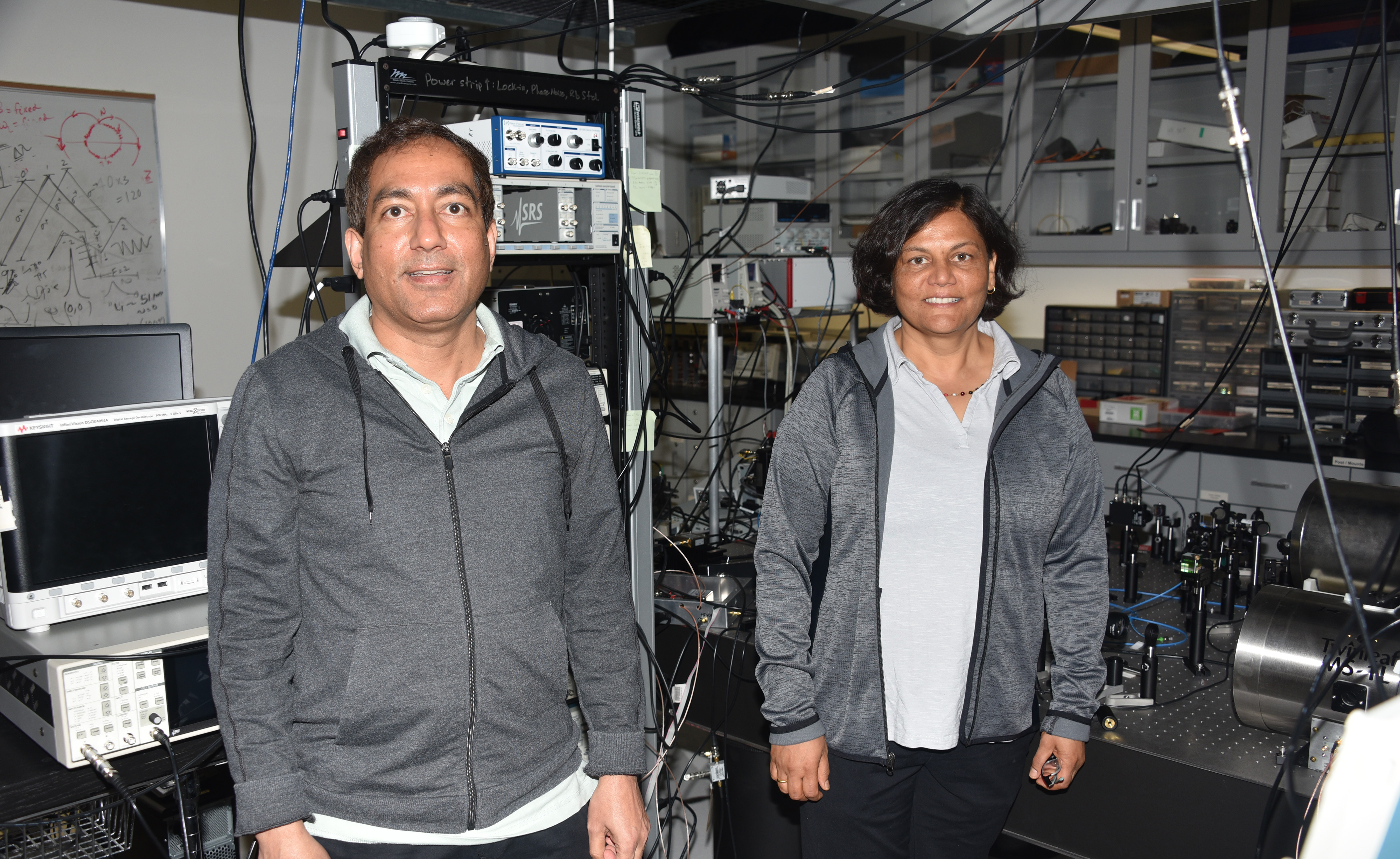
DSU receives DoD Instrument grant
The Department of Defense (DoD) has awarded Dr. Gour Pati, professor of Physics and Engineering, a $239,908 grant from the U.S. Army to develop and build a millimeter wave quantum sensing system at DSU.
Dr. Pati – the principal investigator – and his researchers have recognized the increasing importance of millimeter wave sensing and imaging in commercial and military sectors, as well as how it is driving the development of low-cost sensors. Dr. Pati’s success in winning the DoD grant engages DSU scientists and students in the work of furthering this advancement.
Rydberg atoms have hypersensitive response to microwave, millimeter wave and terahertz radiation. They have tremendous potential to find applications in modern communications, remote sensing and many others fields, including medical science. Dr. Pati and his team will develop a real-time millimeter wave sensor using laser-induced fluorescence in Rydberg atoms.
The funding will allow him to purchase a specialized laser, and several key optical and microwave components, which are at the heart of the quantum sensing system.
According to Dr. Pati, the grant will help him develop a first-of-its-kind research infrastructure at DSU and enable the University to compete in the quantum science and technology arena, recently identified as the U.S. National Quantum Initiative. More importantly, DSU graduate and undergraduate students will be engaged in research, education and training in this area, which is highly relevant for building their career in defense and private industries.
“This equipment award could provide the U.S. Army with new capabilities in field sensing using Rydberg atoms,” said Dr. Paul Baker, atomic and molecular physics program manager at the Army Research Office. “Specifically, this equipment will expand Delaware State University’s ability to perform measurements with high sensitivity, broad spectral range, and high-dynamic range.”
The award is the result of a merit competition administered by the Army Research Office under policy and guidance of the Office of the Under Secretary of Defense for Research and Engineering (OUSD(R&E)) to increase the capabilities of HBCU/MIs to perform defense research. The Army Research Office is an element of the U.S. Army Combat Capabilities Development Command’s Army Research Laboratory.
Dr. Renu Tripathi, DSU professor of Physics and Engineering, will participate as Co-PI on this project.

